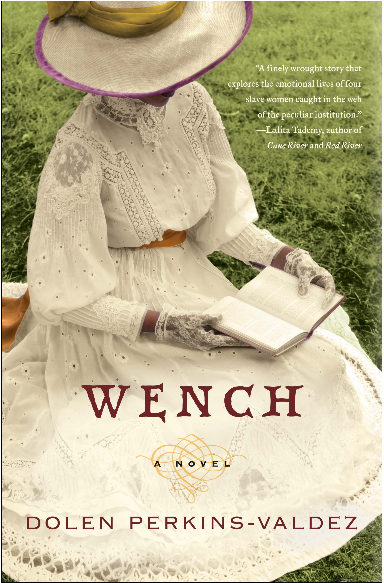
*minor spoilers ahoy*
“Learn well Jake Sully. Then we will see if your insanity can be cured.”
~Mo’at, Avatar (2010)
Overwhelmed with the need to write about Wench, I began this post on my iPod Touch notepad, on a flight from from New Orleans to Chicago. New Orleans, a city where, once upon a time, “wench” meant, as Dolen notes, “a black or colored female servant; a negress” but also where the ritual of sexual access, sexual labor, property in human bodies, domination and re/production ground to its ultimate conclusion. By the antebellum period, New Orleans hosted the largest slave market in the continental United States, an attendant continent-wide sexual traffick in “fancy” girls or light-skined female slaves, and le plaçage, a sophisticated social apparatus which paired affluent white men with local free women of color as consorts.
For years, the ghosts of slavery walked the bend of the Mississippi, whispered from the balconies of the Vieux Carré and slipped up through the steamy cement in Uptown or Marigny (they still do even though Katrina washed many into the waiting arms of their kindred at the bottom of the Gulf). I finished Part One in this context, on a weekday and in one swoop.
Afterwards, I forced myself to take a break. It was tempting to keep going because it was easy to look, hope and pray for the happy ending. But if Dolen continues to tell a story true to American history, or true to black women’s relationship to said history, then a happy ending may be long in coming.
There is a scene of visceral brutality near the end of Part One. Normally, I remember these scenes for the pose they strike within a story, the carmine brutality my mind plays and replays over and over. When this happens, the cerebral vanishes and I find it difficult to recall emotion or personality. I feel dizzy, a heavy pressure at the crown of my head. Or I want to vomit.
But I don't remember this scene for that. The physical reaction remained, yes. But under Dolen’s careful and unassuming hand, the violence of the encounter became less about the contours of a particular moment and more about the impossible choices women as slaves, as mothers, as raced bodies, as workers and as lovers, were/are forced to make over the course of their lives. Instead, the betrayal erecting the scene took my breath away as much as the result--the terrifying and impressive power of a slaveowner's retribution.
That power being necessary to maintain a system--in this case slavery--against the daily permutations of resistance and rebellion enacted against it--breaking dishes, brewing love potions, running away--but which seen in its raw form is still shocking. And effective. I empathized with Lizzie. I know that she weighed every move she made against the threat of violence against her light-skinned son and daughter back in the South. But a part of me also felt deeply for Mawu and affirmed her desperate fight to escape the regime before her stamina for resistance faded. And I know I may never forgive Lizzie for her betrayal. But I will want to. To choose your owner, your lover, the father of your children over your colleague, your sister, your friend...but don’t some of us do that every single minute of every day without feeling any need to justify it? That slavery as a legal institution in the United States ended in 1865 is beside the point. Segregation ended as a legal institution in the United States in 1964. And a contract, a law, a signed piece of paper does not unravel centuries of customary relations between white and black, male and female, mother and father and child.
Just as New Orleans “stank of the arousal of rape,” an aroma resplendent throughout the institution and which climaxed within the city's boundaries, so does the history of slavery unpack our current gender relations, sexual relations, color politics; strip us bare, naked, and raw; break the fetish down into its constituent parts--bone, teeth, hair, blood, earth. Dolen’s Wench reminds us that sex across and within color lines is never devoid of politics, never left to some amorphous feeling called love. And kinship is work, forged against all odds to save your own life because the consequence of failure is brilliant in its savagery. Love itself is political, is contested and is a battlefield.
X-Posted at Nunez Daughter
